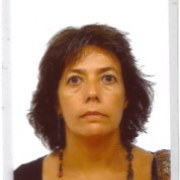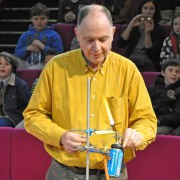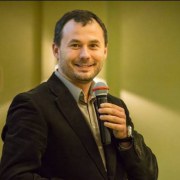A growing number of studies show the importance of museum explainers during school visits to facilitate a better engagement of students. Numerous teacher courses have also recently been developed on the use of science centres as teaching resources. Generally speaking, schools and science centres seem to be engaging in closer collaborations.
What does it mean for teachers and explainers? What do they expect from each other? How can they avoid treading on each other's toes? Can courses help improve communication between them?
Each of our speakers has a different take on these questions - join the debate!
Facilitator
Session speakers
Principal Researcher
Instituto de Educação da Universidade de Lisboa
Lisboa
Portugal
As a science teacher educator I will present the impacts of a teacher course, designed and implemented in a science centre, on teachers’ exploitation of the opportunities offered by science centres as learning contexts. Data were collected through direct observation of the tutorial sessions and the visits organized and implemented by the participant teachers at the end of the course, and through an online questionnaire applied to all participants about what they expected from science centres.
Executive Director
Tavira
Portugal
There is a debate on the need of having human facilitation during visits to science centres. Depending on the quality of exhibitions, and of the interactions with facilitators, in some cases the presence of explainers can assume major importance. This is the case of the Tavira Ciência Viva Science Centre. The space is small, needs renewal and the interaction with explainers is fundamental. Feedback from the audience reinforces that this is seen as an added value of the visit.
Education Coordinator
Planetário C. Gulbenkian- Ciência Viva Science Centre
Lisboa
Portugal
Having the opportunity to play both roles in different situations (school science teacher and science centre educator/explainer) gave us deeper evidence about how essential is the existence of effective communication between both actors during a school visit to assure learning is really happening in students’ minds and hearts.
What main factors are involved in those two different perspectives and how may courses from science centres help to improve communication between them?
Director
Ian Russell Interactives
High Peak, Derbyshire
United Kingdom
I have strong views about this session, which might be controversial and provoke discussion. My advice is to avoid hiring too many people who have been trained as classroom teachers. And certainly to avoid calling them 'explainers'. I have some experience of working with science centre 'facilitators', but many years of engaging directly with the public in my science shows and workshops.
Head of Science and Didactic Department
Lodz
Poland
Since many years on the Faculty of Physics and Applied Informatics we have been planning to integrate education of teachers and science popularizers. And now we are very close to do it, with EC1 Lodz, a new science centre. This is a big opportunity to teach science teachers with extra competencies on popularization field, or, museum explainers, ready to work for science centre, but also competent on field of science. I'll present our course curriculum assumptions and ask how we can optimize it.






